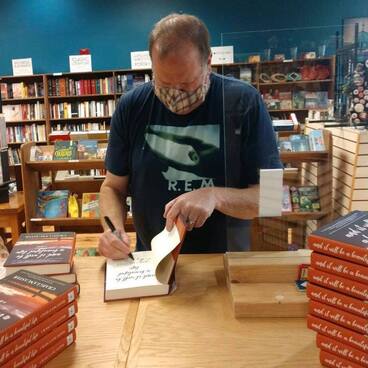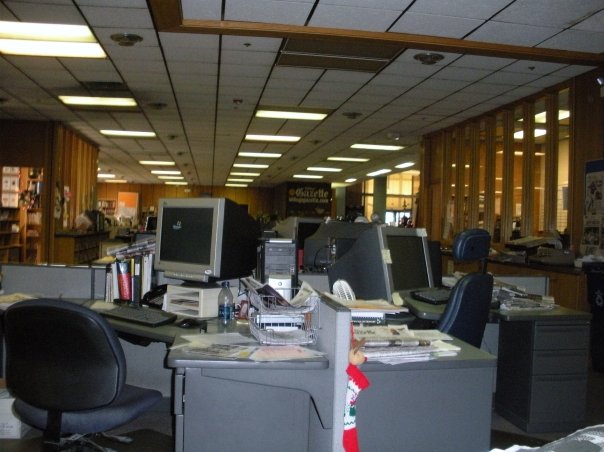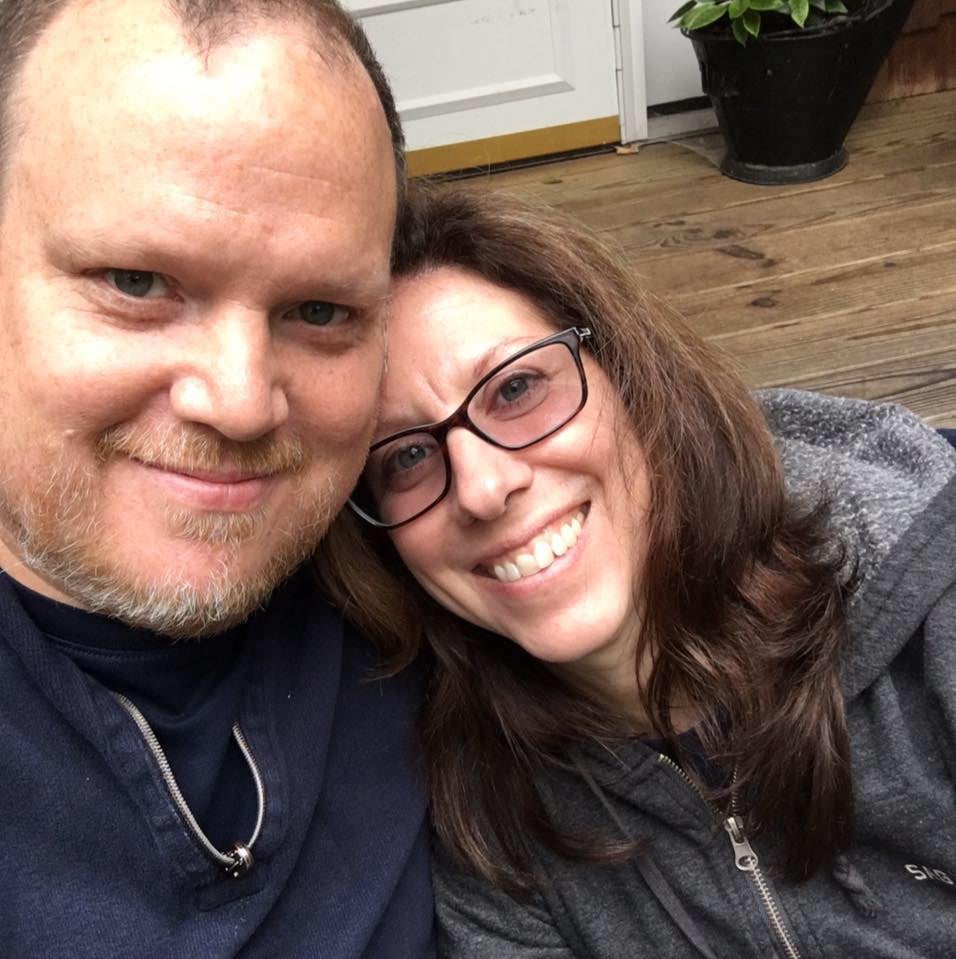|
4/18/2022 0 Comments Who I Am. What I Do.**—If I'm doing it right, there's both overlap and freestanding territory. For years and years, I didn't do it right. Facebook, I've noted before, isn't good for much, but it's damn near essential for a few things: easy keeping up with far-flung friends and relatives, recipes, irritating others with your daily Wordle grid, cat memes, birthday greetings (the most heartwarming day of the year, every year), etc. Increasingly, I'm finding value in the stored-up daily memories, especially the things I don't remember writing or don't remember the impetus for writing. Today (April 18) served up this kick to the hippocampus: My newspaper career started in October 1988, when Jim Fuquay gave me a job as a part-time correspondent at the Fort Worth Star-Telegram. It ended in August 2013, when I left my job as night city editor at the Billings Gazette. In between, I worked at nine newspapers in six states. Some jobs I took for the adventure (Peninsula Clarion, Kenai, Alaska, age 21). Some I took for money (Dayton Daily News, 1994). I almost always regretted those, by the way. Some I took for escape (Anchorage Daily News, 1995, to get away from Dayton). Some I took because I knew they'd make me better (San Jose Mercury News, 1998). One I took to correct a mistake (San Jose Mercury News, 2000, after bouncing to both San Antonio and Olympia, Wash., earlier that year). Twice I accepted jobs and then backed out before I was due to report (particular apologies to the Lewiston (Maine) Sun Journal). I took different jobs for different reasons. Sometimes those reasons panned out and sometimes they didn't. But most of the time, what I was really looking for in a new job was some new version of me. I never found that. Not once. It feels good to finally admit this. Let's unpack this, shall we? Elisa and I were talking about this the other day, having reached an age at which there's plenty in the rearview to examine and second-guess and (we hope) plenty of road ahead to consider other pathways: If we had it to do again, would we make different career choices? What might we have done instead? Because those ponderings inevitably run up against the butterfly effect, we ended up in a predictable place: Nope. We're good. But it remains an interesting thought experiment, if only for the clarity you find about the choices you did make. I ran toward print journalism—and stayed there a good long time—because it made good use of my particular talents and because it was, in my narrow sense of the word, a daily adventure. Within the strictures of daily newspaper production—you have to gather the stories and stats and pictures, you have to edit the material, you have to design the pages upon which it all rests—were wide variables in what you dealt with daily. The news was always different. The pages began, every day, as blank canvases. I loved that. What I traded for that was significant, though: Friends in other lines of work made more money, enjoyed greater security and stability, had evenings and weekends free, etc. These are not insignificant things. Who I was and my stance with regard to work, especially in my 20s, are so entirely removed from who I am now that I have to strain to remember that guy. I know that his entire definition of self was wound up in being a journalist, that he went to bed thinking about it and woke up each morning with it on his mind, that he bounced up to the world with that shingle around his neck. I lived to work, and I sought out any chance I had to work extra hours, to get plum assignments, to make myself as close to indispensable as I could (an illusion, of course, but one I willingly bought in those years). It's what I didn't do that taunts me now. I didn't fall in love in those years; how could I, when the aggrandizement of Craig the Journalist was front and center among my priorities? I get at that idea in the Facebook memory above: In all my wandering around, looking for some new version of me, I carried my old self into each new situation (wherever you go, there you are). I didn't learn to play the guitar or take a judo class or write a novel. Until, you know, I wrote a novel. When I was trying to emerge from brokenness and impending divorce in 2014-15, I spent a lot of time with a counselor (highly recommended) and with my nose in reading material aimed at my mental/emotional state (e.g., King Warrior Magician Lover) and my soul (The Rag and Bone Shop of the Heart). I wanted to understand what was happening to me, why it had happened, the parts for which I had responsibility (many) and the parts I had to let go (also many). I also read a lot of shorter pieces, some with resonance and some without. Two that stick out, years after the fact, were written by Mark Manson. I recommend these highly, whatever your situation: Fuck Yes or No: "Since you’re now freeing up so much time and energy from people you’re not that into, and people who are not that into you, you now find yourself perpetually in interactions where people’s intentions are clear and enthusiastic. Sweet!" The Guide to Strong Relationship Boundaries: "People with poor boundaries typically come in two flavors: those who take too much responsibility for the emotions/actions of others and those who expect others to take too much responsibility for their own emotions/actions." I hear what you're saying. Craig, you're saying, this is great, but you're talking about personal relationships now, and you were talking about work, and I'm confused. No, no, I'm still talking about work. This is the point. In the extreme emotional duress of a divorce—a traumatic thing I do not recommend, unless, of course, it's the thing that will skirt an even bigger trauma—and with the help of a well-trained, compassionate human and the collected wisdom of learned thinkers, I began to unlock some problems I'd dragged into every area of my life: my interpersonal relationships and my relationship with work. This hard process of dredging up changed me. Better personal boundaries also meant better work boundaries. I'm no less good at what I do—in fact, I'd argue that I'm much, much better than I've ever been—but no longer am I defined entirely by a magazine spread that I've designed, or a report I've edited, or a chapter I've written. What I do is also who I am, but it's not the entirety of the picture. It was written mostly as a joke, but like any good joke, there's truth inside it. In the sidebar on this blog, I define myself this way: Craig Lancaster is an author, an editor, a publication designer, a layabout, a largely frustrated Dallas Mavericks fan, an eater of breakfast, a dreamer of dreams, a husband, a brother, a son, an uncle. And most of all, a man who values a T-shirt. I can live with that.  Signing copies at This House of Books in Billings. Signing copies at This House of Books in Billings. In some significant ways, what's happening now in the American workforce—this thing they're calling the Great Resignation—is a manifestation of an assertion of boundaries. We've been through a lot: social tumult, a deadly pandemic, a rebalancing and cross-pollination of work lives and home lives. People are reconsidering what they value, how they want to toil, whom they want to toil for, and what price they're willing to accept for those vast swaths of their finite lives. Good. It's healthy in the long run, even if it's upsetting to the status quo in the shorter term. The last time I moved—packed up my life and my car and my expectations--for a job was more than 20 years ago, when I left Olympia, Wash., to return to San Jose, a place I never should have left in the first place. I can't imagine doing it again, although one of the benefits of growing older is learning that one really shouldn't say never. My point is that although I plan to strap on the work boots for a good long time—I like to work, a fact that was clear even 30 years ago, if badly applied--where I am and who I am and how I'll share those parts of me need more than just a job. I need a multidimensional identity, too, and at last I have one. That's what I was missing in all those moves cited in the Facebook post above. The last time I recast how I define myself professionally occurred when I wrote and published that first book and I figured I could finally call myself a novelist instead of just a guy who wished he had one inside him that he could extract. That was nice, too, but it's not everything. Without the laying about and eating breakfast and doting on my nieces and nephews and being a son and a brother and worrying about the Dallas Mavericks and spinning through this life with my wife, in fact, it wouldn't mean much at all.
0 Comments
Your comment will be posted after it is approved.
Leave a Reply. |
About CraigCraig Lancaster is an author, an editor, a publication designer, a layabout, a largely frustrated Dallas Mavericks fan, an eater of breakfast, a dreamer of dreams, a husband, a brother, a son, an uncle. And most of all, a man who values a T-shirt. Archives
July 2024
By categoryAll 600 Hours Of Edward And It Will Be A Beautiful Life Awards Books Bookstores Community Connection Craft Craig Reads The Classics Dreaming Northward Education Edward Adrift Family Geography History Libraries Memory Montana NaNoWriMo Northward Dreams People Plays Poetry Public Policy Q&A Social Media Sports Stage Texas The Fallow Season Of Hugo Hunter The Summer Son This Is What I Want Time Travel Work Writers Writing Archives
July 2024
|


 RSS Feed
RSS Feed